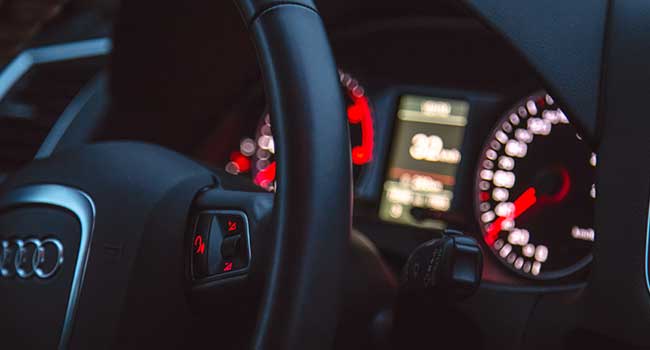
The Future of Connected Cars and Keyless Entry in 2018
The year 2017 undoubtedly saw the connected automotive business grow dramatically, and by 2020 over 250 million connected cars are set to hit the roads.
- By Andy Allan
- Dec 04, 2017
The year 2017 undoubtedly saw the connected automotive business grow dramatically, and by 2020 over 250 million connected cars are set to hit the roads. The automotive industry is facing a challenging transformation to develop connectivity, and brands failing to lead innovation and reinvent their business will face a declining presence in 2018 and beyond.
Connected cars have access to the internet, boast sophisticated sensor networks, send and receive signals, sense the physical environment around them, and interact with other entities or vehicles.
Data-driven growth is already developing the way automobiles function, and although we can’t guarantee the landscape of car technology in 2018, one thing is for sure: it will continue to radically develop, and we’ll see improvements in vehicle security, data storage, and driver assistance technology.
Here, we look at the important milestones the automotive industry will see in 2018, and what this means for the connected cars of the future.
Keyless Entry Security
Instead of physical keys, connected cars are increasingly looking to digital, smartphone-based entry.
The rise of new devices means the rise of new digital threats for connected cars, and keyless entry poses great security challenges for car owners. The UK is witnessing a rise in connected car theft using relay boxes that alter the radio frequency of cars, tricking the car’s system into thinking that the owner is nearby with the key. By extending the range of peoples’ wireless fobs, it’s possible to enter the car, and even start the engine.
As car hacking devices become more sophisticated, connected car owners will demand the integration of greater keyless privacy controls. Auto manufacturers are beginning to pay attention to the cyber security risks posed by connected cars, and develop difficult entry systems for attackers gaining control of key systems. The demand for improved keyless entry security will continue to witness a rise in anti-theft technology with more robust and widespread forms of identification, including biometric touch ID or even face ID via smartphone key locks.
Automotive Data Connectivity
Connected vehicles are data-centric beasts estimated to generate around 25 gigabytes to data centres every hour. Such vast amounts of data demand complex storage requirements for the process, and analysis of 0’s and 1’s into information and innovation.
Soon, we will witness data generated by connected cars improve driver safety, security, and even offer personalised driving experiences. Even today, we are witnessing the start of connected cars being able to understand individual preferences for features such as where you shop, work, eat, times you drive, internal temperature and even favourite radio stations.
The related challenges and opportunities that come with cloud storage will only continue to develop, as connected car figures increase.
The future will see the data-driven automotive industry focus on the integration of technology solutions and processing systems for ease of automotive data analysis.
Driver Assistance Technology
Today, the increasingly complex tasks undertaken by driver assistance technology, are already seeing connected cars perform automatic braking to prevent collisions, parking control, lane discipline, and traffic jam warnings. Powered by the consumer demand for applications that promote comfort and convenience, in-car driver technology is seeing connected cars become increasingly self-aware of the environment around them.
Advanced Driver Assistance Systems (ADAS) are developing through co-operative relationships between developers and providers of cutting-edge innovation for automation systems. Regulated globally, the progression of ADAS is seeing the US and EU collectively govern autonomous emergency braking systems, and forward collision warning systems as law for all vehicles by 2020.
There is no doubt that throughout 2018, automation systems will continue to see improvements in data storage; hence the increased implementation and discovery of greater and more efficient driver assistance technology.
Near Future
Although it is hard to precisely predict the progression of automotive technology, we are already witnessing the future discussions of keyless entry security, automotive data connectivity and driver assistance technology. The widespread adoption of connected cars will see more and more car manufacturers reinvent and rise to greater innovation. Soon, we may see connected navigation enabling drivers to determine the most fuel-efficient route. Antifatigue devices will soon be able to monitor drivers’ vital functions and report potentiation health problems, and management systems will provide car performance information to insurance companies.
With connected cars, the possibilities are endless.
To learn more, visit CAT Autokeys at http://www.catautokeys.co.uk/.